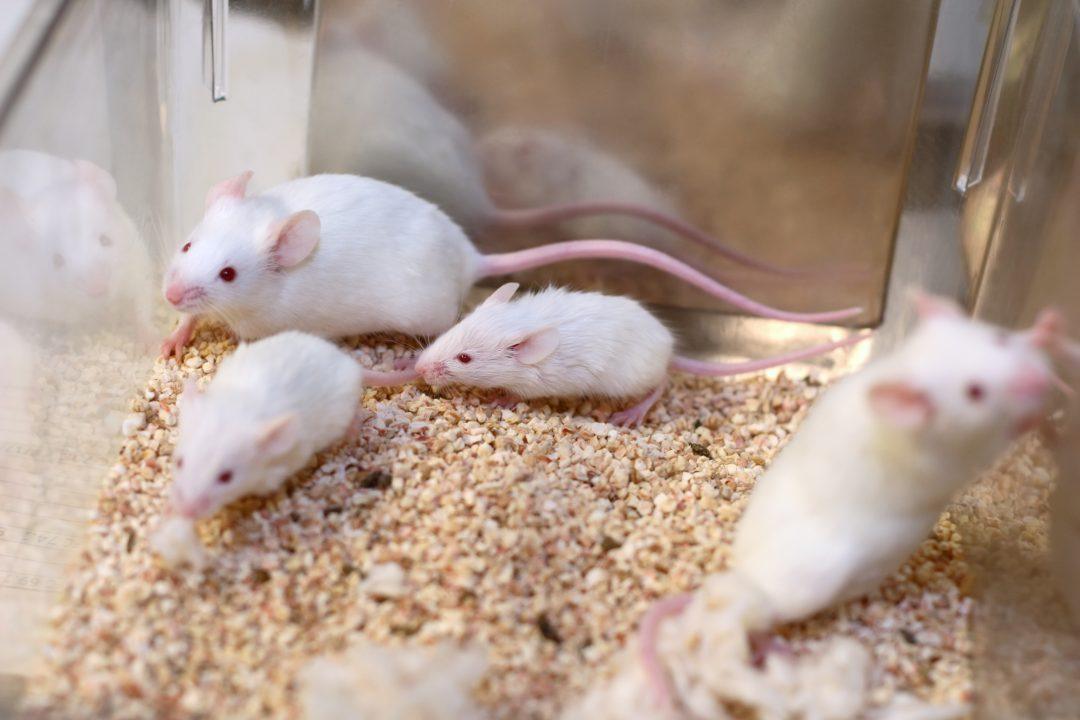A woman with multiple sclerosis has hailed a “breakthrough” discovery that scientists say could reverse the effects of MS – after a ground-breaking new treatment was tested on mice.
Joanne Newall, who was diagnosed with relapsing remitting MS in 2021, said the discovery of a new method that could repair nerve damage is “nothing but positive” for those living with the condition.
Researchers from Edinburgh University studying the illness have said they may have developed a treatment that can help regenerate myelin around nerve cells.
In healthy people, the body has the ability to repair myelin easily but in patients with MS this becomes less effective, and the process is blocked.
This makes it harder for the brain to send messages to the muscles, affecting how a person walks, moves, sees, and feels – although there are currently medical treatments to aid these symptoms.
Researchers from Edinburgh University have now used a technique called CRISPR to genetically edit human oligodendrocyte progenitor cells (OPCs) to make them ignore anti-repair signals.
These improved OPCs were then transplanted into mouse brains – where it was shown to the team at the University of Edinburgh that the process of re-myelination improved.
It is hoped that the “breakthrough” discovery can be adapted into human treatments in future.
 MS Society via Supplied
MS Society via SuppliedJoanne, 36 from Kilmarnock, became fascinated by MS research after listening to talks by researchers at a recent community event jointly hosted by her group and MS Society Scotland.
She said: “After attending the Living Well with MS Ayrshire and Arran event in August, I am amazed by the amount of research going on right here in Scotland.
“It’s reassuring to know that research is making positive steps forward to stop disability progression in people with all types of MS. Also, knowing that there is now talk of hopefully moving onto the stage of human research gives me hope of a future without MS.
“The work the researchers are doing is fascinating and shows how much of a leap research has come on in 20 years. This is nothing but positive for the MS community.”
The findings, published in the journal Nature Communications, are the result of six years of work from the MS Society Edinburgh Centre for MS Research.
Anna Williams, professor of regenerative neurology and study lead, described the science behind the study as “exciting”.
She said: “Many studies in the past have tried to transplant oligodendrocytes or similar cells into the brain to repair myelin. However, the hostile environment of MS lesions stops these transplanted cells from working.
“The difference in our study – which was six years in the making – is that we were able to genetically modify the transplanted cells so that they would ignore these negative signals and repair myelin. This is exciting as now we have shown that we can scientifically tweak cells in a dish and transplant them into models to improve repair.”
Multiple sclerosis (MS) is an autoimmune disease that affects the brain and nerves. Caused by the immune system mistakenly attacking the brain and nerves, MS is incurable – but medications and other treatments can help ease symptoms.
Talking about what this means for people with MS in the future, Dr Laura Wagstaff – a postdoctoral researcher at the University of Edinburgh – said: “Our work is a proof of concept, and the next step is to see if we can remove the need for transplants and edit the cells directly in humans.
“This is an approach similar to gene therapy which may be an effective method of promoting remyelination in the future.”
Follow STV News on WhatsApp
Scan the QR code on your mobile device for all the latest news from around the country
























